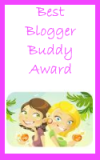Angry Children, Worried Parents: Helping Families Manage Anger
Parents worry when their children struggle with anger. Angry feelings and behavior can be especially challenging for children who have learning and attention problems. To help parents address this problem, Sam Goldstein, Ph.D., Robert Brooks, Ph.D., and Sharon Weiss, M.Ed. have teamed up to co-author a new book, Angry Children, Worried Parents: Seven Steps to Help Families Manage Anger (Specialty Press, 2004). This practical book presents a step-by-step program to help parents understand the causes of anger in children and to design a program to help their children learn to manage angry feelings and behavior.
What is Anger?
We all become angry at times. Anger is a natural human emotion, one of many responses we can express when we are frustrated and prevented from reaching our goals. Since anger is a universal emotion, it seems logical to conclude that there is nothing wrong with feeling angry. The problem occurs when anger leads to inappropriate actions or behavior. The problem, then, is not being angry but dealing with angry feelings in an ineffective way.
Childhood experiences as well as inborn temperament powerfully influence the way parents express anger and teach their children to manage anger. How do you respond when you’re angry? Do you become cynical or overreact? Do you yell? Do you hit your children? How did your parents respond to you when you were angry as a child? Did they punish you? Did they shame or blame you? Do you have a tough time dealing with anger because your parents didn’t know how to deal with it?
We choose to view anger as a signal, an indication to the individual that a goal or outcome is being blocked and that frustration is building. How children — or adults, for that matter — learn to respond to this signal will determine ultimately whether they manage anger or anger manages them. In response to anger, some blame others as the source of their problems. They use anger as fuel to drive and justify what they view as a necessary response. Yet anger is best viewed as a signal to take action rather than a sign of being treated unfairly.
What Role Does Anger Play in Everyday Life?
Anger begins as an emotion of varying intensity. It can be experienced as a mild irritation or as unbearable frustration. At the extreme end, particularly for children who are impulsive or inflexible, anger often leads to intense fury and rage. As with other emotions, anger is accompanied by physical and biological changes in the body. Heart rate and blood pressure increase. Levels of certain hormones, such as adrenaline, increase, leading to other physical changes in the body. Some researchers have suggested that aggression in response to anger may be instinctual. They believe that anger may be a natural, adaptive response to stress, allowing people to respond to a perceived threat and defend themselves. Therefore, a certain amount of anger is likely necessary for survival, even in our complex, civilized society. But when defense occurs in the absence of true provocation, anger becomes a liability. It also becomes a liability when we react verbally or physically in an extreme way to angry feelings, when children are unable to modulate anger, or when problems occur at home, on the playground, and in the classroom.
Teaching Anger Management
The goal of teaching children anger management is to reduce excessive reactions when angry and to develop skills to use anger as a signal to redirect their behavior. As with learning to swim or ride a bicycle, as you begin to work with your child it is important to be patient. Not all children learn to swim in the first lesson or master riding a bicycle that first day. Some children require much longer periods of practice to develop proficiency.
Keep in mind also that some children are born more likely to be irritable and easily angered. These symptoms usually appear at an early age. Yet, it is also important to remember that some children behave this way because they live in households in which they are exposed to models of poor anger management. Some children experience both risks, leading to a significant probability that they will struggle to learn to manage anger effectively. Some of these children may require professional help.
The primary goal is to help children and adolescents express anger in an assertive rather than aggressive manner. This means they are neither pushy nor demanding, but learn to be respectful advocates for themselves. This also means that they learn to cope with, not simply suppress, their anger. Suppression is only a partially effective strategy. When angry feelings are suppressed they often emerge later on, usually in an excessive way in response to a minor event related to an earlier anger-provoking experience. Suppressed anger is also thought to contribute to passive-aggressive behavior such as getting back at people indirectly without telling them why or confronting them directly. It also fuels cynical or hostile behavior, leading children to be excessively critical and fault-finding.
Anger Management Strategies
There are steps parents can take to help their children deal more comfortably, effectively, and adaptively with anger. These interrelated steps include:
1. Serve as appropriate models for your children. Remember that children don’t always do what we say. They are more often likely to do what we do. Thus, a key component of teaching anger management is for you, the adult, to manage anger and model effective anger coping strategies for your children.
2. Be empathic. As you teach your children to express anger constructively, place yourself in their shoes. Ask yourself such questions as:
“Am I speaking to my children so they will learn from me rather than resent me?”
“Would I want anyone to speak with me the way I am speaking with my children?”
If we do not consider our children’s perspective, we are likely to say or do things that may actually work against helping our children learn to deal constructively with anger.
3. Involve your child as much as possible in the process of dealing effectively with anger. Even young children can be engaged in a discussion that includes consideration of:
a. what makes us angry.
b. what are different options for dealing with anger.
c. what might be the consequence of each option, and
d. what option might be most effective.
When we enter into such a dialogue, we reinforce the belief in children that they can learn to control anger rather than have anger control them. This provides a sense of ownership, self-discipline, and resilience.
4. Remember the adage, “an ounce of prevention is worth a pound of cure.” Engage in prevention and “planned parenting.” Notice when certain situations are especially difficult or frustrating for your child and prepare a “plan of action” in advance. For example, if your child gets frustrated when going into a store, wishing to have every item in sight, you can say before going in, “You can select one item. You let me know which one you would like to have.” If even this kind of preparation does not work, it may be a signal that your child is not yet ready to accompany you in the store. Or, if your child “fights” about going to bed and you find yourself trying to cajole him for an hour, it might be helpful to provide your child a sense of ownership and avoid a struggle by saying, “Do you want me to remind you 10 minutes or 15 minutes before bedtime that it’s time to get ready?” Prevention also involves providing clear and realistic expectations, following a flexible but predictable structure, and being consistent.
5. Discipline in a way that lessens frustration and anger and reinforces self-discipline. All parents can become frustrated, at times, with their children, but when parents respond to their children’s anger by screaming, yelling, or spanking, they are unintentionally reinforcing the very behaviors they wish to stop. A parent who screams or spanks is communicating such messages as: “We handle frustration through anger,” or “As long as I am bigger than you are, it’s okay for me to shout and hit.” Parents who remain calm while disciplining, who have clear expectations, who use realistic, natural, and logical consequences, and who remember that discipline is a teaching process, will lessen outbursts of anger in their children, while reinforcing self-control.
6. Show your children unconditional love and spend “special times” with them. While these behaviors can be placed under the heading of “prevention” (step Four), we believe that they are so important they deserve their own section. When parents accept their children and show them unconditional love, children are less likely to become very frustrated or intensely angry. When parents spend time alone with each of their children in such activities as playing with them, reading to them at bedtime, going out for snack or to a game, they have opportunities to develop a positive relationship. Such a relationship will provide the foundation for teaching children self-discipline and assisting them in managing frustration and anger constructively.
Even in the best functioning families, children may be angry at times with parents. Parents may be angry with children and children may experience anger regarding other issues or people outside of the home. The key issue is how we choose to deal with our angry feelings as parents, and how effective we are at helping our children develop strategies to learn to manage anger. We believe that one of the most important tasks of parenting is to help children become skilled at anger management.
Adapted from Angry Children, Worried Parents by Sam Goldstein, Ph.D., Robert Brooks, Ph.D., and Sharon K. Weiss, M.Ed.
Beach day parenting
7 months ago



































4 cherished words:
Great to meet you! I'm popping in from the Mommyfest site. I enjoy your blog. It's really nice. Hope to see you drop on over to my site, The So Called Me. I'd really love to have you!
Happy Partying! <3
Anger management is so important.
BTW: Thanks for stopping by my blog and I am so glad to have met you! :-)
This is great info. I was blessed to have learned proper confrontation skills and pass them on to my kids. Communication is so vital and anger can be so self-damaging.
Hugs~
Thanks, Jenny, for the kind words.
Thanks for stopping by, Petula.
I totally agree with your last sentence, Phyllis.
Post a Comment